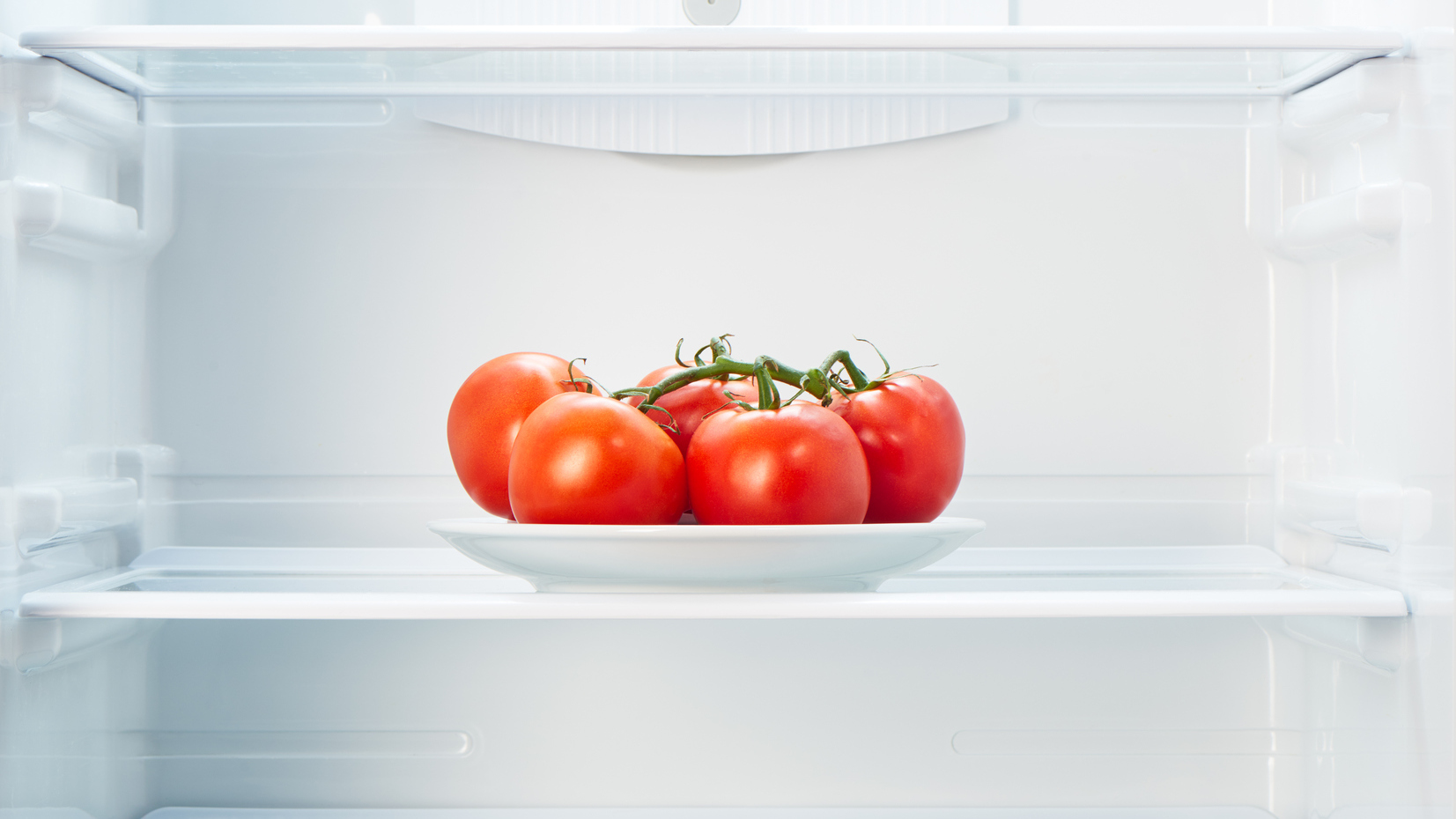Does Refrigerating Tomatoes Zap Their Flavor?
We may receive a commission on purchases made from links.
Hopefully you've experienced the singular joy of a ripe tomato sliced thick, its juices at peak flavor, a melange of sweetness, acid, and freshness. To know the joy of a wonderful tomato is to also know the heartbreak of a sad, mealy tomato with bland pink innards, typified by the disappointments you find topping fast-food sandwiches.
If it's flavorful tomatoes you're seeking, experts say, you must keep them away from your refrigerator. "Postharvest practices such as refrigeration can irreversibly damage flavor," writes Dr. Harry Klee of the University of Florida, a biochemist who is considered one of the top tomato-flavor researchers in the world. He's studied aspects of tomato genetics that create the volatile compounds responsible for flavor, and has found that refrigeration reduces those compounds.
Tomato industry groups echo his no-refrigeration advice: "All the science that we've seen indicates that you should never refrigerate tomatoes," Michael Schadler, manager of the Florida Tomato Committee, tells The Takeout. I ask him whether suppliers refrigerate tomatoes between harvest the grocery store anyway, which would kill those tasty compounds.
"[Tomatoes] will be cooled if needed, but not below 55 degrees," he says. "It's needed for long-distance transport in trucks, but again, not below 55. Of course, some retailers and other handlers may not always follow optimal guidelines but the good ones do."
In contrast to the overwhelming majority of advice saying you shouldn't refrigerate tomatoes, one man stands apart: Daniel Gritzer, culinary director at Serious Eats. His 2014 article, provocatively titled Why You Should Refrigerate Tomatoes And Ignore Anyone Who Says Otherwise, summarizes the results of a taste test he conducted using heirloom tomatoes. He found that, even after bringing unrefrigerated and refrigerated tomatoes back to the same room temperature, his taste testers preferred the ones that had been stored in the fridge. His is a lone, but loud, dissent from prevailing wisdom: He posits that peak-season ripe tomatoes "benefit very little from extra time in the heat, and in many cases they are harmed by it, while the refrigerator does minimal harm once tomatoes are ripe."
Self-described "tomato nerd" and Tomatoland author Barry Estabrook isn't convinced by Gritzer's findings.
"He threw a monkey wrench in things, sure, but was it scientifically valid? I'm sure he found what he found but I don't know how credible his research would have been," Estabrook tells The Takeout. He says the small sample size and methods of Gritzer's study make his findings less valid than the many taste testes and scientifically conducted surveys conducted by researchers like Klee and other industry groups over the years that have led to the anti-refrigeration advice. He says 68 degrees is the optimal storage temperature, and he himself sticks with tried-and-true wisdom.
Said Estabrook: "I would never refrigerate a tomato."
